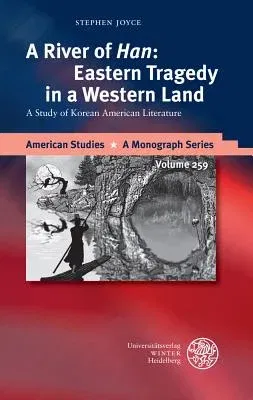Stephen Joyce
(Author)A River of 'han': Eastern Tragedy in a Western Land: A Study of Korean American LiteratureHardcover, 1 May 2015

Qty
1
Turbo
Ships in 2 - 3 days
Only 2 left
Free Delivery
Cash on Delivery
15 Days
Free Returns
Secure Checkout

Part of Series
American Studies - A Monograph
Print Length
397 pages
Language
English
Publisher
Universitatsverlag Winter
Date Published
1 May 2015
ISBN-10
3825364585
ISBN-13
9783825364588
Description
Product Details
Author:
Book Format:
Hardcover
Country of Origin:
US
Date Published:
1 May 2015
Dimensions:
21.59 x
14.48 x
2.79 cm
ISBN-10:
3825364585
ISBN-13:
9783825364588
Language:
English
Location:
Heidelberg
Pages:
397
Publisher:
Weight:
544.31 gm